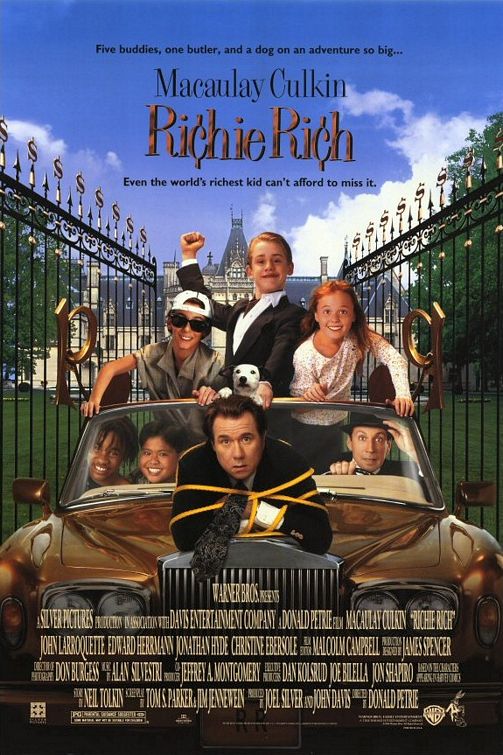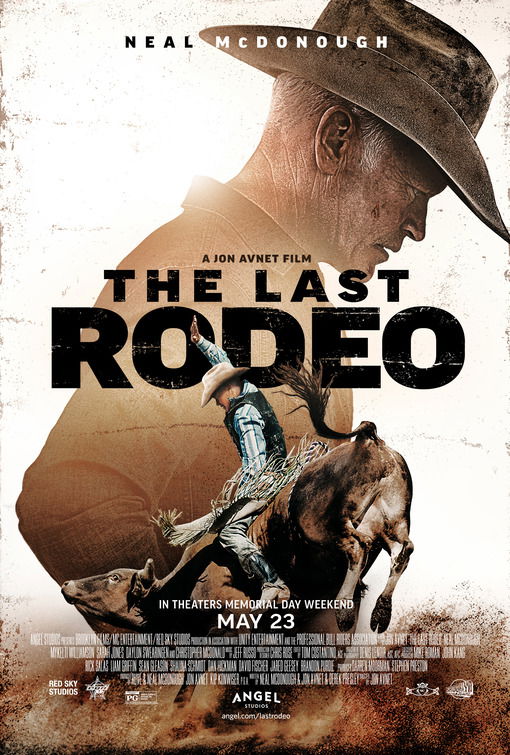The Disconnect Between Hollywood and America
By Patrick L. Sajak Host, Wheel of Fortune
The following is abridged from a speech delivered at Hillsdale’s All-College Spring Convocation, held at the College Baptist Church, on April 4, 2002, but just as relevant today!
Here in this quiet, peaceful corner of Michigan, you might not have a sense of your importance in the world. I come from a community that has the opposite problem. Because it is so big and so powerful, so great and so well-known, it has an exaggerated view of its significance. That community is Hollywood. Not Hollywood, the town. Not much Show Business actually goes on there. Most of the studios are spread around other Southern California communities, like Culver City or Burbank. But I mean Hollywood, the Entertainment Mecca—which includes parts of Southern California and New York City, and, because news has become entertainment, some of Washington, D.C., as well.
While I work in Hollywood, I live elsewhere. My family and I live in a quiet suburb of Annapolis, Maryland. The kids go to school there. They live near their grandparents—my in-laws—and most of my neighbors care very little about overnight ratings, box office grosses and sweeps weeks.
We don’t hate L.A. In fact, we like it, and we spend a great deal of time there. But I happen to have a job that allows me a great deal of flexibility, and that gives me the luxury of living a real life in addition to my fake one.
You see, one of the dangers of my business is that it has the potential to fill you with a distorted view of life and of your importance in it. And, it’s understandable in a way. If you are part of a successful enterprise, people treat you very well. They send limos for you. They tiptoe around you. They pretend that the most outlandish or inane things you might say are important and quotable.
Drugs? Adultery? Alcoholism? Deviant behavior? Don’t worry. You go on Oprah-you cry-people call you heroic for being so open-and your career soars to new heights.
You’re treated importantly, so you must be important. Suddenly your views are not just your own private opinions; they become part of the public record. They quote you on Entertainment Tonight and in People magazine. You can endorse a candidate, fight for a cause, call people names—it’s pretty heady stuff. The world waits breathlessly for your next pronouncement.
Rosie O’Donnell—a daytime talk show host—goes public with her sexual preference, and she is lauded as brave. What exactly is brave about that? First of all, who cares? And, what’s brave about getting the chance to be interviewed by ABC and landing on magazine covers? I characterize it as bravery-as-a-career-move.
I don’t mean to pick on Ms. O’Donnell, but it’s just another example of the self-importance that Show Business can bestow on you—the idea that your sexual preference matters to anyone other than your immediate family and your partner, or partners, seems rather silly to me.
Speaking of silly, Alec Baldwin, an actor, recently compared the election of George W. Bush to the terrorist attacks. This is the same Baldwin brother who promised to leave the country if Bush were elected. Sadly, he reneged on that one. Baldwin also went on Conan O’Brien’s late-night show during the Clinton impeachment to say that Illinois Republican Congressman Henry Hyde should be shot—along with his family.
Do remarks like that get you chastised in Hollywood? Ostracized? Marginalized? No, it’s Alec Baldwin. He’s an actor. He’s in Show Business. He’s important.
The silliness and outrageousness that emanates from Hollywood comes from non-performers as well. Ted Turner once mocked his employees who had ashes on their foreheads for Ash Wednesday as “Jesus Freaks.” Mr. Turner, a self-proclaimed protector of human rights, apparently has his limits.
Filmmaker Rob Reiner—a cofounder of Castle Rock Entertainment—is reportedly upset by what he sees in many films these days, and he plans to do something about it. In fact, he’s so upset about this thing, anyone who wants to depict it in a Castle Rock film must meet with Reiner first in order to justify its inclusion.
So what’s got Rob so upset? Gratuitous violence? Casual sex? Disrespect toward Christianity? Bias against Big Business? Is that what he wants to cut down or eliminate? No, of course not. That would be censorship. He wants to get rid of smoking. There’s too much smoking in movies. To quote Mr. Reiner, “Movies are basically advertising cigarettes to kids.” No knock on Rob. In fact, I agree with him. But why is smoking open to censorship and not these other issues? And, what happened to Hollywood’s argument that movies and TV shows don’t cause bad behavior, they just reflect it? Or, is it merely a health issue? But surely, health is involved when it comes to violence and casual sex.
The answer is, there is no answer. It’s just Hollywood being Hollywood. It’s monumental hypocrisy. Kids can’t pick up bad habits from what they watch… oh, except for
smoking.
You see, if you complain about what you see as excesses on the screen, you are a book-burning prude who wants to tell everyone else how to live. You are a censor. You have no right. That is a right saved for the wise. They know better. They are important.
It’s the same kind of nonsense that brings celebrities to “Save the Earth” benefits in eight-mile-per-gallon limos. Or, that allows them to make a public service announcement urging recycling—filmed at their 20,000 square foot homes. They can lecture to you and you should listen, even if they don’t, because… well, because they’re celebrities. They’re from Hollywood, for goodness sake-and you live in Michigan!
I could go on with a laundry list of silly and hypocritical things said and done by some of my fellow Show Business luminaries, but the point here is not to make them look silly. They’re perfectly capable of doing that without my help.
The larger point is the disconnect between the realities of this nation and its people, and the perceived realities of many in the entertainment community.
I don’t mean to sound too harsh—or hypocritical. After all, I seem perfectly happy to have cashed my checks for the more than 30 years I’ve been in television. And, I’m not exactly working on the Dead Sea Scrolls. I do make a living by selling vowels and spinning a giant multicolored wheel!
So, who am I to be pointing fingers? Well, I’m just someone who wants to feel prouder than he does—as proud as he once was—about what goes on in his industry. And, that’s why I spend only part of my time around it. I need to step back occasionally. I think it does help me see
the world more clearly.
And, that’s the irony of it all. Whether it is from my home in Maryland or from your classroom here in Hillsdale, you—in a very real way—are more aware of what this nation and this world are about than the supposedly well-connected and in-tune people who inhabit our media culture.
Former CBS News-man Bernard Goldberg has written a best- selling book called Bias, in which he maintains that the real problem with the media is not a bias based on liberal vs. conservative or Republican vs. Democrat. It is a bias based on the sameness of worldview caused by social, intellectual, educational, and professional inbreeding. These are folks who travel in the same circles, go to the same parties, talk to the same people, compare their ideas to people with the same ideas, and develop a standard view on issues that makes any deviation from them seem somehow marginal, or even weird.
They think they have diversity in their midst because they take pains to hire a representative mix of gender and race. But, there is no diversity of thought. On the great social issues of our time, there is an alarmingly monolithic view held by what has become known as the “media elite.” You can bet that the New York Times is careful about how many women it hires, but you can also bet that it is not very careful that these women hold diverse views on issues they’ll be writing about, such as the environment, gun control or abortion. My guess is that a pro-life view within the walls of the Times is a pretty rare one. And, the same holds true on the entertainment side. It is just assumed that “right thinking people” hold certain views. If you don’t… well there’s the problem.
How can you portray people fairly in film or on TV if you think their attitudes are so foreign? How can you write about people fairly if they seem so out of touch with what you are used to in your everyday life?
That might help explain why religion is rarely depicted as a natural part of life in the average sitcom or drama series, despite the fact that tens of millions of Americans say that it is important to them.
At a dinner party in Los Angeles many years ago, our hostess was about to say some grudgingly kind words about President Bush and the way he was handling the War on Terror. She prefaced her remarks by saying, “Now I know everyone at this table voted for Al Gore, but …” Well, she knew no such thing. She just presumed it. It’s what “right-thinking” people did. This “false reality” is a phenomenon that permeates media circles.
It’s the phenomenon that caused Pauline Kael, former film critic for The New Yorker, to remark after Richard Nixon’s election sweep in 1972, “I can’t believe it! I don’t know a single person who voted for him.” This was a man who won in 49 out of 50 states, and she didn’t know one person who voted for him. And, I don’t think she was dealing in hyperbole. She simply had never met those people. She couldn’t believe they really existed.
It’s the phenomenon that allows the media to “rediscover” patriotism and heroism in the wake of September 11, when those of you in Hillsdale, and millions of others in St. Louis, Cleveland, Salem, Phoenix, Cheyenne, and a thousand other cities and small towns, know that those traits never went away.
It’s the phenomenon that explains Hollywood’s disdain for Big Business. You read about it in the newsmagazines and see it in the movies. Big Business is bad. The people who run these businesses are heartless, often criminal, brutes. There is no regard for the little guy. Thousands are laid off while the greedy business executives reap windfall profits. Never mind that some of the biggest and least-competitive businesses are in entertainment. They merge, they lay off thousands, while stock options accrue to the top executives. Top talent at networks and in movies get tens—even hundreds—of millions while so many of their co-workers, the little people they care so much about, lose their jobs. They simply don’t see the contradiction. They are above it.
And, perhaps worst of all, it’s the phenomenon that allows movie studios and television networks to program with an utter disregard for your kids and your communities. It’s not that they’re evil people. They have kids, and they care about them. But they see no connection between what they do and the results of what they do. And, besides, you’re not really families and communities. You’re ratings, demographics and sales.
You see, they are—for the most part—clueless. Clueless about this country and its people. Clueless about you. And, they are afraid. They are afraid of the new technologies-afraid of the dwindling numbers of viewers or readers or listeners… afraid for their very existence. So, don’t you see, they have to do what it takes to survive. They must survive. They are important. Who do you people out here—the ones they fly over on their way to the other Coast for meetings—who do you think you are?
Well, you are this country. You are its future. And, I think that’s a very good thing to be. The world can look mighty dark and forbidding at times. But, how exciting to be in a position to help change all that. And, you’re at the center of it. The center is not Los Angeles or New York. The power is not in Hollywood or Washington. The power is here.
Oh, you may end up in one of those other locations, but look what you will bring with you. This place. Its ideals. Its strengths. Its traditions. You will have spent these formative years in a setting where ideas can be discussed and treated with respect. Where the great traditions of this nation and its cultural heritage have been passed on to you… and, through you, will be passed on to countless others.
No matter how you eventually make your living or where you live your life, your time here at Hillsdale helps assure that you will have a positive impact on your generation. That strikes me as an excellent start on your legacy.
I will take a small part of Hillsdale with me when I leave. I envy the big part that each of you will carry throughout your lives. This resource—this power—is reality. Not the media’s version of it. And, you possess it. Use it wisely.
Thank you.
Editor’s Note: Pat Sajak was born in Chicago, Illinois, in 1946 and attended Columbia College. Hired at his first job in broadcasting in 1967, he left college in 1968 to volunteer for the Army and was posted to Vietnam, where he served as a morning disc jockey on Armed Forces Radio. Following his discharge, Mr. Sajak’s broadcasting career brought him to television station KNBC in Los Angeles, where he performed weather duties and hosted a weekend talk show. Wheel of Fortune creator Merv Griffin hired him to host the then-daytime game show in 1981, adding the syndicated evening version in 1983. Since then, the program has been the most watched show of any kind in syndication. Mr. Sajak’s honors and awards include three Emmys, a People’s Choice Award, and a star on the Hollywood Walk of Fame. In addition to his broadcasting career, he owns a radio station in Annapolis, Maryland, a television production company (in association with Sony Pictures), a music publishing company and a record label. He has performed readings with, and guest-conducted for, the Dallas, Pacific and Florida Symphony Orchestras, and serves on the boards of the Claremont Institute and the American Cinema Foundation.
Reprinted by permission from Imprimis, a publication of Hillsdale College.
Questions or comments? Please write to us here.


 - Content:
- Content: 

